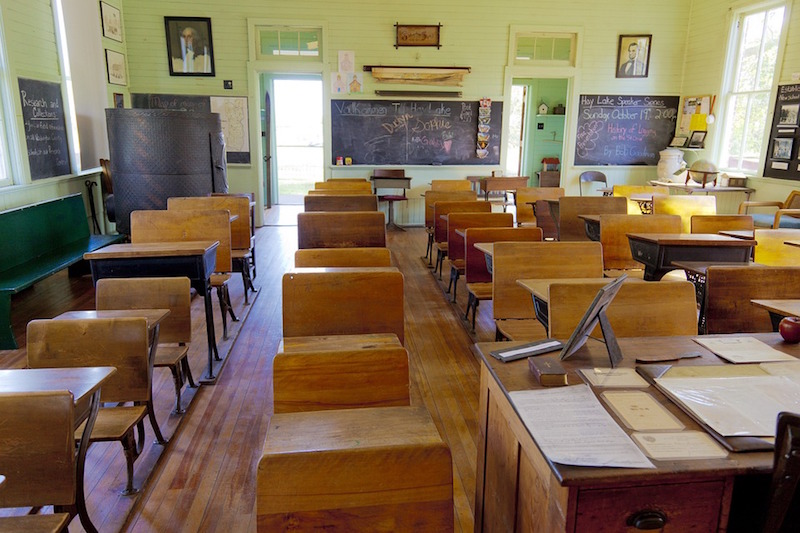The U.S. Department of Energy recently launched the zero energy schools accelerator, an effort to develop cost-competitive zero energy school design.
Six school districts, two states, and several national organizations are working collaboratively on the effort. DOE defines a zero energy building as “an energy-efficient building, where on a source energy basis, the actual delivered energy is less than or equal to the onsite renewable exported energy.”
The program’s goal is to quickly make Zero Energy K-12 schools more mainstream. Participating school districts commit to developing their own zero energy plans for a district project within a year. They can also engage with fellow states and school districts, and gain support from regional and national organizations.
Officials kicked off the program at a school in Arlington, Va., that features advanced next generation energy efficiency and renewable power features, including solar rooftop and geothermal heating and cooling systems. Zero Energy schools have the potential to save 65%-to-80% in energy consumption, depending on climate the zone, DoE says.
Related Stories
| Sep 18, 2014
GBCI to administer PEER certification for power grids and building projects
The Green Building Certification Institute (GBCI) will administer certification for the Performance Excellence in Electricity Renewal (PEER) program.
| Sep 18, 2014
Master Painter Institute approves 55 new paint products
The Master Painter Institute has issued approvals for 55 new paint products.
| Sep 18, 2014
OSHA announces new requirements for reporting deaths and severe injuries
The U.S. Department of Labor's Occupational Safety and Health Administration announced a final rule requiring employers to notify OSHA when an employee is killed on the job or suffers a work-related hospitalization, amputation, or loss of an eye.
| Sep 18, 2014
Eugene, Ore., passes ordinance to achieve steep energy consumption reductions
The Eugene, Ore., City Council recently passed an ordinance aimed at steeply reducing energy consumption and greenhouse gas emissions.
| Sep 10, 2014
Nine out of 10 New York City building plans fail energy code test
Earlier this year, New York City's Department of Buildings began auditing thousands of architectural plans for new and renovated office and residential buildings.
| Sep 10, 2014
AIA, CSI, and NIBS publish updated national CAD standard, includes new BIM module
The NCS helps architects, constructors and operators coordinate efforts by classifying electronic design data consistently and making information retrieval easier, the industry groups say.
| Sep 10, 2014
Perry named new director of OSHA’s Standards and Guidance Directorate
Bill Perry has been named new director of the OSHA’s Directorate of Standards and Guidance, effective Aug. 24, 2014.
| Sep 10, 2014
ASHRAE proposes verification for energy standard
The ASHRAE/IES energy standard would have multiple compliance options to ensure verification of delivered building envelope performance under a new proposal.
| Sep 2, 2014
Micro-apartment concept can’t get traction in Boston suburb
Micro-apartments are gaining acceptance in nearby Boston and in places such as San Francisco and New York, but Weymouth, Mass., officials and neighbors were not receptive to a proposal for tiny dwellings this summer.
| Sep 2, 2014
Montreal borough leader urges city to issue green roof guidelines
The mayor of Montreal's Saint-Laurent borough wants Quebec's housing authority to speed up its plan to publish construction guidelines for green roofs.









